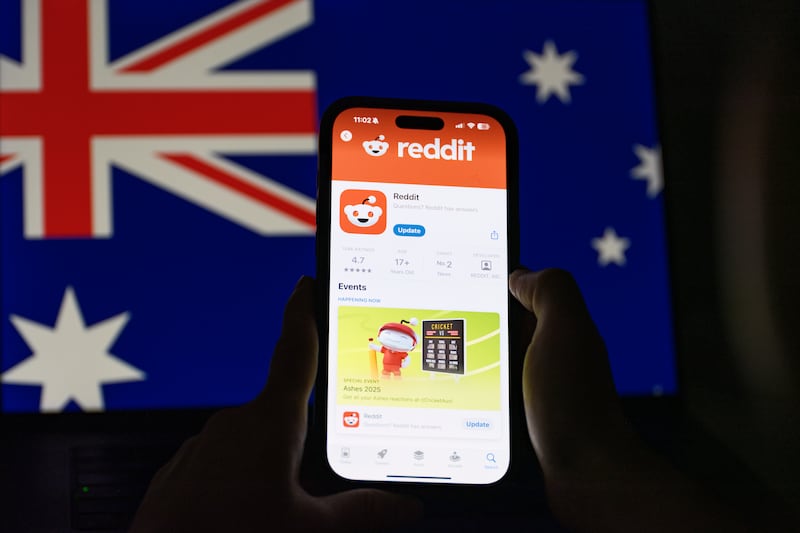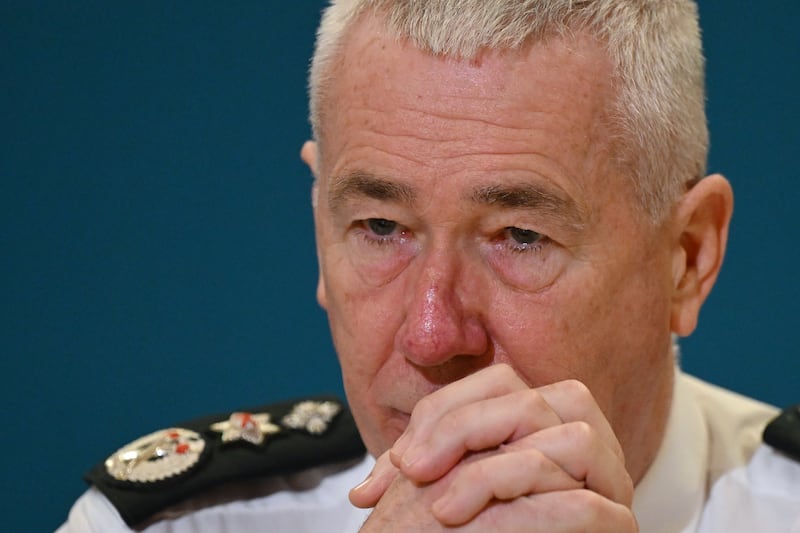Vidya Vivek has been a full-time artist for more than a decade, finding her love for painting following the birth of her second child. It wasn’t until she moved to Ireland, however, that she noticed a greater societal appreciation for her type of work.
“In terms of art, the general appreciation of art is more here. India is still picking up, but it is definitely much better here – the general public, how they receive art, how they appreciate it,” she says.
“I think if you did a study of the number of people going to museums in India or here, you’d find it’s definitely better here. I also see a lot of grants, support from the Government. India has to do a lot to get there.”
Vivek grew up in Ooty, a small town in the low mountains in the southern state of Tamil Nadu. She moved to Ireland in July 2018 after her husband was offered a job here.
READ MORE
The family didn’t know much about Ireland but decided there were two aspects to life here that made it attractive: the fact it is an English-speaking country, and that motorists drive on the left-hand side of the road.
Vivek, a mother of two, has a background in civil engineering, but when her youngest daughter, Charvi, was born prematurely, she decided to take some time off to care for her. “She needed a lot of care; she was in ICU for almost two months. I realised it was going to take some time for me to get back to the world of work,” she says.
I invested in myself; I attended workshops a lot more, got materials and everything. Since then I’ve been working in art for 10 or 12 years now
At the time, social media was really taking off. To keep herself occupied when she wasn’t fulfilling her caring duties, she started to paint and then uploaded a few of her completed works online. “The response was good. One of my family friends offered to buy [one of the paintings]. I thought he was just pulling my leg, but he has a keen eye and collects paintings. That was a motivator for me,” says Vivek.
“I decided: why not just try? I invested in myself; I attended workshops a lot more, got materials and everything. Since then I’ve been working in art for 10 or 12 years now. Then I decided, I realised I was more passionate about art so I didn’t go back to what I was doing earlier. I stuck to this.”
She describes her career as an artist in India as “settled”, with the relocation to Ireland meaning she had to “start from scratch”.
“It was different and nothing works overnight, so I had to do my research. If I want to establish myself again as an artist over here, I realised I would have to do a lot of ground work to get to know how to. Even things like how to exhibit or to find out about artists here.
“In 2019, I started exhibiting. I wanted to just get out. The first one I did was in People’s Park [in Dún Laoghaire, Co Dublin], you know where you have people putting their paintings on the railing and everything? I wanted to get a feel of how it is. By that time, I was pretty happy that everything was moving. The reception to my artwork was also good over here so I was pretty happy.”
She has now begun to give workshops and teach painting. Most of the people in her class are women, aged 50 or older. “They have more time or are retired, and it’s really nice being able to get to know these people.”
Even the cost in terms of the rentals are high here. Even in terms of materials for art. Art materials don’t come cheap. I had to spend a lot more
Being involved in art has allowed her to make lots of friends. She met some Irish artists online before she moved, her neighbour took her to see the National Gallery, and she has set up a collective of artists called the Dublin Desi Artists Collective (DDAC).
There were things she found vastly different from her home country. Getting around was one unexpected issue she encountered, she says, as was the cost of living.
“Everybody drives here and I couldn’t drive yet so that was a challenge. Though public transport is there, it’s not as frequent as in India,” Vivek says.
“The other part, even the cost in terms of the rentals are high here. Even in terms of materials for art. Art materials don’t come cheap. I had to spend a lot more.”
The presence of foliage and vegetation around the place is also a pleasant change, she says. “In India there is greenery but there is so much population as well, but here every week or two we try to go to the Wicklow mountains. I love it there. We just go off there and spend time in nature because it’s really beautiful there. It’s like a painter’s paradise.”
Before you move, you can hear stories about war and things like that. Sometimes you can be hesitant about other countries. I was part of a fundraiser for asylum seekers, so it was nice to see it was done by Irish people
There are some similarities too, particularly between the people of the two countries.
“One thing that is common is we talk a lot and I find the Irish talk a lot. So it’s very easy to get along with people here,” she says.
Vivek says she likes a lot about her life in Ireland: the education system, the slower pace of life and, most importantly, just how welcoming, accepting and diverse she believes the country to be.
“Before you move, you can hear stories about war and things like that. Sometimes you can be hesitant about other countries. I was part of a fundraiser for asylum seekers, so it was nice to see it was done by Irish people. And you had people of all cultures coming together, which was nice. It’s all about humanity,” she says.
“The year we came here, the very next day we went out and it was the Pride parade. I had never seen one before. In India, it’s catching up now, but it wasn’t [very liberal]. It was so colourful and so nice. These things are great. Every day you learn something and you see something.”
We would like to hear from people who have moved to Ireland in the past 10 years. To get involved, email newtotheparish@irishtimes.com or tweet @newtotheparish


















